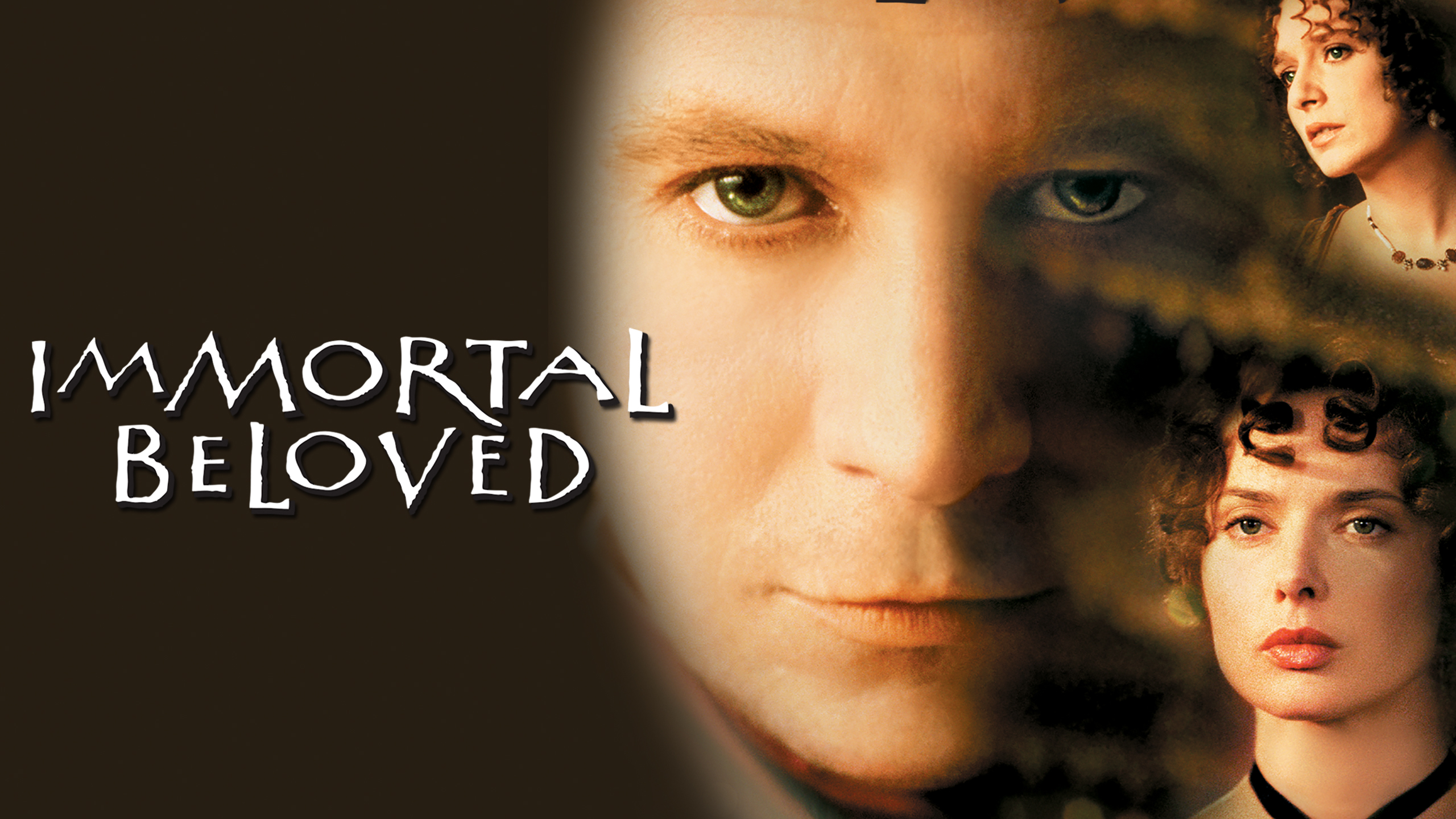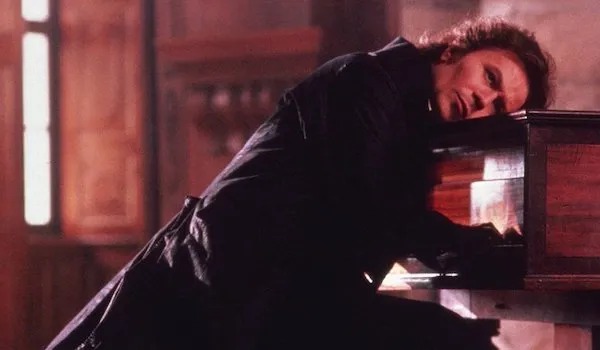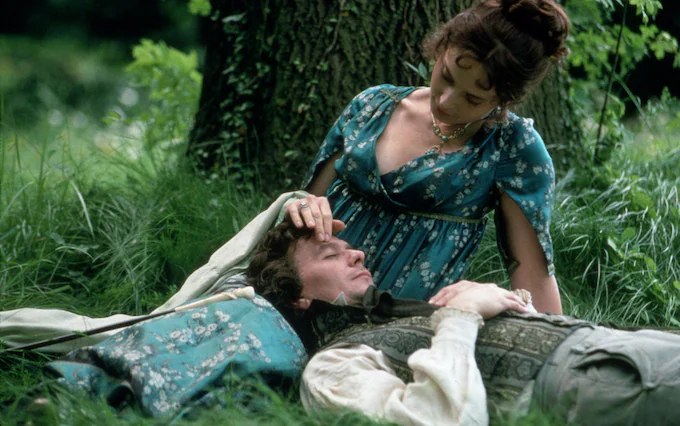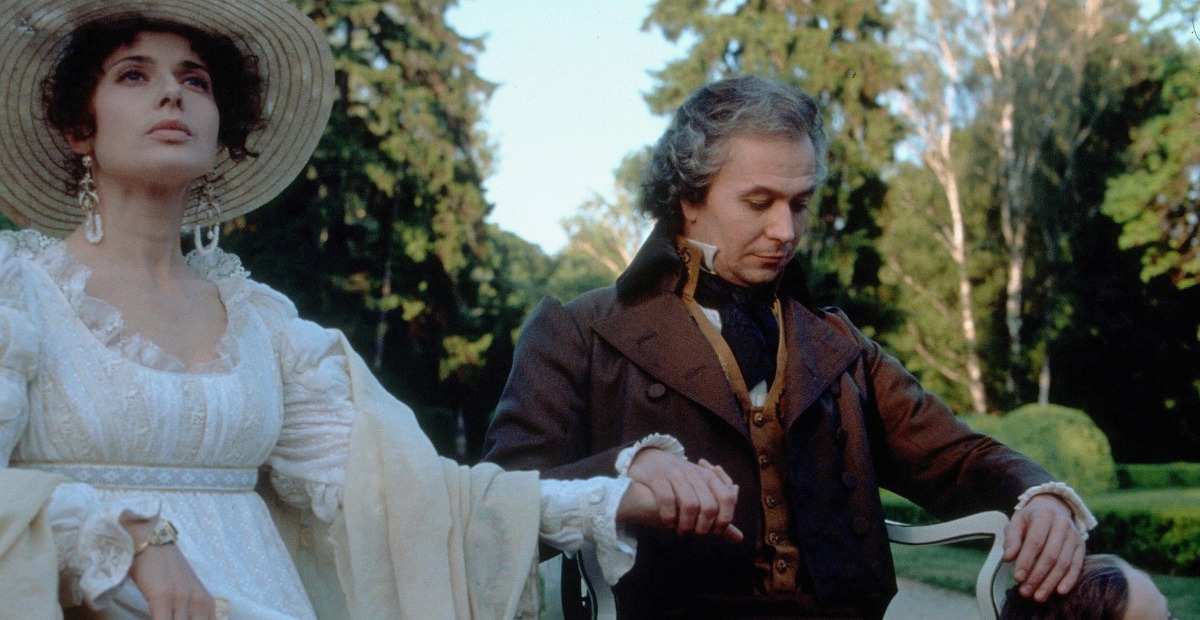Immortal Beloved (1994)

Immortal Beloved (1994) is a biographical drama film directed by Bernard Rose and written by Rose, exploring the life of the legendary composer Ludwig van Beethoven. The film stars Gary Oldman as Beethoven, with a supporting cast that includes Jeroen Krabbé, Isabella Rossellini, and Johanna ter Steege. It delves into Beethoven’s complex personal life, focusing particularly on the mystery surrounding the identity of his “Immortal Beloved,” a woman who played a pivotal role in his life and whom he mentions in a passionate letter.
The plot of Immortal Beloved unfolds as a mysterious letter is discovered after Beethoven’s death. The letter is addressed to his “Immortal Beloved,” a woman whom Beethoven loved deeply but who was never publicly revealed in his life. As the film progresses, a young musicologist named Christoph (played by Jeroen Krabbé) is tasked with uncovering the identity of this enigmatic woman. His search leads him through various facets of Beethoven’s tumultuous life, including his passionate relationships, his personal struggles with deafness, and his artistic genius.
Gary Oldman delivers a powerful and deeply emotional performance as Beethoven, capturing both the brilliance and the tormented soul of the composer. His portrayal emphasizes Beethoven’s inner conflict, his emotional isolation, and his dedication to his music despite the personal hardships he faced. Oldman’s ability to convey the intensity of Beethoven’s emotions through both subtle gestures and impassioned outbursts brings a depth to the character that makes the film engaging and heart-wrenching.
The film’s direction by Bernard Rose is notable for its exploration of the themes of love, genius, and suffering. Rose uses Beethoven’s music as a powerful storytelling tool, with iconic compositions like Moonlight Sonata and Für Elise underscoring the emotional highs and lows of the narrative. The film’s pacing is deliberately slow and contemplative, allowing the audience to connect with Beethoven’s internal struggles as well as the mystery of his relationship with his “Immortal Beloved.”

Immortal Beloved also delves into the tension between Beethoven’s personal life and his creative genius. Beethoven is depicted as a man who sacrificed his own happiness for his art, and the film explores the emotional toll of his isolation and his inability to fully connect with others. The theme of unrequited love is central to the narrative, as Beethoven’s yearning for connection with his “Immortal Beloved” mirrors the emotional void he experiences in other areas of his life.

The film’s visual style is striking, using rich, atmospheric cinematography to reflect the somber tone of Beethoven’s life. The settings, from the grandeur of his musical performances to the intimate spaces of his personal world, are depicted with an attention to detail that enhances the emotional depth of the film. The use of lighting and color also serves to highlight Beethoven’s complex character, contrasting moments of brightness and inspiration with darker, more somber scenes of personal turmoil.

In conclusion, Immortal Beloved is a compelling biographical film that explores the life of one of history’s greatest composers. Through Gary Oldman’s remarkable performance and Bernard Rose’s sensitive direction, the film captures the emotional and intellectual complexities of Beethoven’s life, offering a poignant look at his legacy. The film not only celebrates his music but also explores the personal sacrifices that shaped him into the icon he became, making it an unforgettable cinematic experience for both music lovers and those interested in the intricacies of human emotion.











